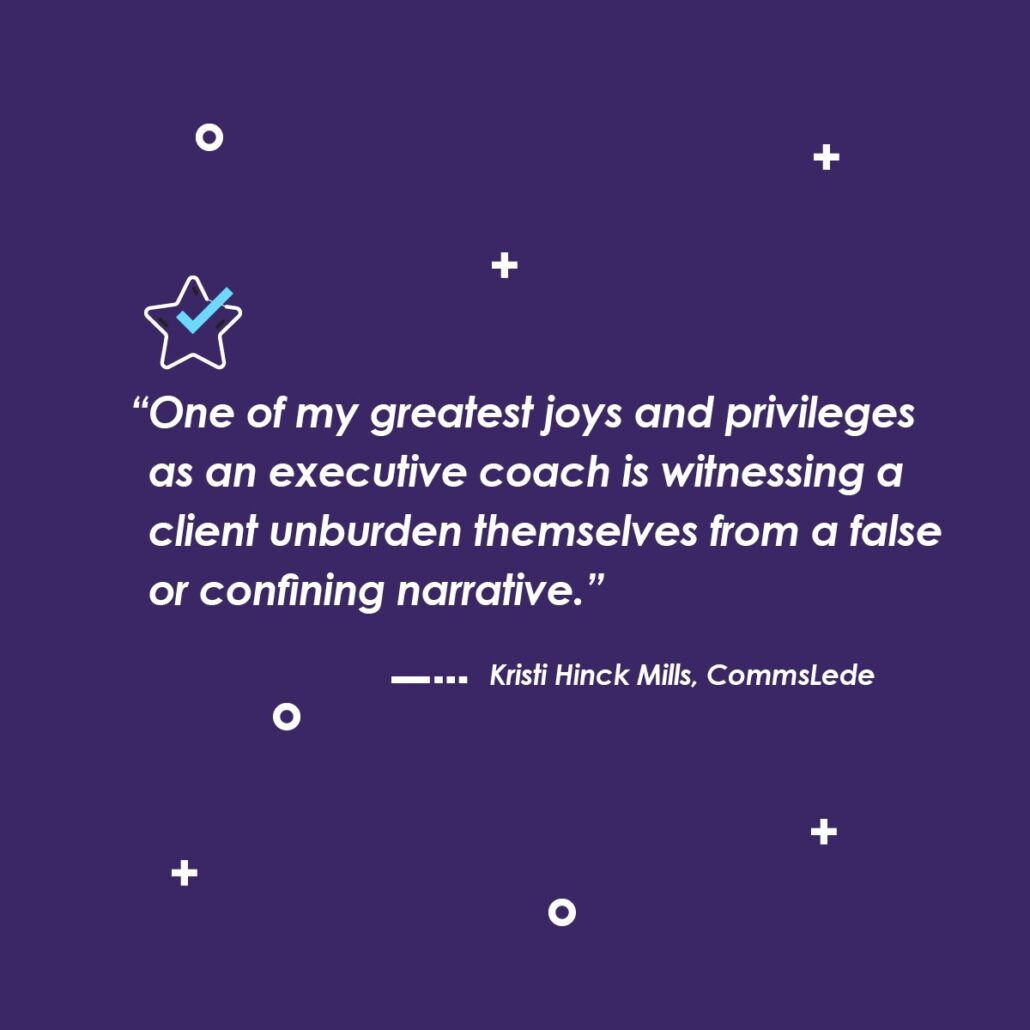
“I should just feel lucky to be here,” a talented client confessed to me one day.
My jaw dropped and my eyes squinted.
“What did you just say?” I asked.
“I should just feel lucky to have a seat at the table,” she responded.
This statement absolutely floored me. My client was one of the smartest, most talented finance leaders I knew. She was savvy, smart, articulate, and strategic. She was a strong manager, had outstanding reviews, held solid boundaries, and I’d never seen her sweat.
“Can I ask who told you that story?” I ventured.
She paused, thinking deeply and sighing. “I guess it was my mom. She encouraged me to go into finance. She never worked, and never had her own paycheck. She always said I should feel lucky to have a good paying job to go to, and that I should feel grateful for any role I had. She told me to never ‘make waves’ at work or call attention to myself.”
This is just one of many examples I’ve heard of incredibly talented and bright people believing completely untrue stories.
Where Do These Stories Come From?
As former PR pro, I know a thing or two about stories. I learned early on to find data and images that supported my angles. I’m deeply aware of how quickly a persuasive narrative can take hold, and how an inaccurate or unsubstantiated story can spread like wildfire. I know how the same story, shared by a celebrated influencer or an employee insider (or trusted parent) can sound very different when coming from a company spokesperson, a C-suite leader, or a best friend.
The stories we hear can come from anywhere. Our families, our communities, our first-grade teacher, or high-school soccer coach. They can come from loving friends, helpful spouses, trusted advisors, or well-intentioned mentors. They also can come from sabotaging peers, disgruntled teammates, or uninformed nosey Nellies that gossip at the water cooler.
The point is, only you know your true story.
The Limiting Power of Stories
What’s consistently shocked me over my career is how ingrained and limiting stories can be to individuals, and how easily seemingly critical thinkers wholeheartedly believe what they’re told. This is why I counsel clients to always consider the stories they are telling themselves and why. I tend to pause on casual statements clients make in passing. Things like:
- I’m not really creative. I just like to do the work.
- I’m not cut out to lead a team.
- That leader is no fan of mine.
- I don’t have the skills required to take on that project.
- I need more time/people/resources to deliver truly meaningful results.
- I need more formal education/training to be credible.
When we discover that these are often stories we tell ourselves — or worse, stories uninformed people have told us — we take time to explore, unpack, and often debunk them.
The Joy of Shedding a False Story
One of my greatest joys and privileges as an executive coach is witnessing someone unburden themselves from a false or confining narrative. This often leads to incredibly fast growth and self-awareness.
To get started, the brilliant researcher, professor, author, and podcast host Brené Brown suggests this easy phrase: “The story I’m telling myself about this is …” and then fill in the blank. Taking time to really consider the source, the story, and honestly evaluate its truth before moving forward can make a significant difference in the choices we make and the roles we embrace.
With more than two decades of communications experience spanning agencies, Fortune-100 organizations, non-profits and academia, Kristi Hinck Mills brings her passion for employee communications to CommsLede Consulting, where she delivers strategic solutions and executive coaching for her clients. Visit the CommsLede blog for more tips.



